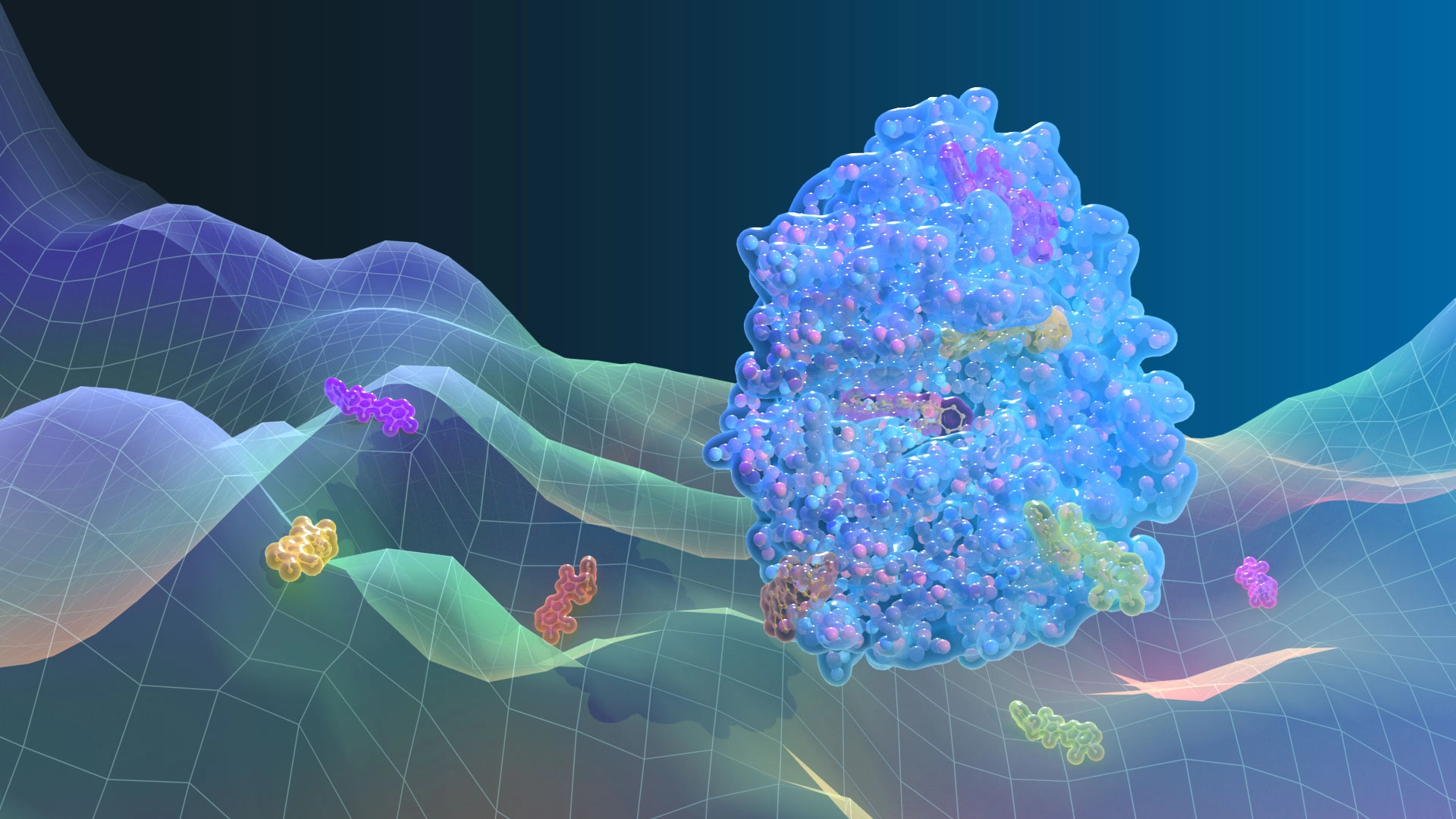Statistical thermodynamics relates the microscopic properties of atoms and molecules to macroscopic properties relevant to drug discovery, including binding affinity, selectivity, solubility, and permeability.
Understanding this powerful relationship allows us to predict experimentally observable properties from atomistic simulations. This approach also allows us to compute biologically relevant quantities such as binding affinity, selectivity, allostery, membrane permeability, and solubility from molecular dynamics simulations without the need for vast amounts of training data, which currently do not exist. Furthermore, our proprietary approach to decompose energies into atomic and functional group contributions provides our researchers with design insights that could not otherwise be gained. This process allows our scientists to reach a deeper understanding of protein targets and design new ligands that modulate properties in desirable ways.
Computing Meaningful Free Energies
Another way to think of statistical thermodynamics is to consider free energy as the determining factor in all biological processes. In this way, kinetics and thermodynamics allow us to avoid the abstraction of a simplified, empirically derived representation. This means we can compute the true free energy of a system and determine the subtle balance between entropy (the amount of disorder in a system) and enthalpy (the total heat content of the system) without massive amounts of training data. We begin with first principle simulations and predict biologically meaningful properties. The compelling advantage of our approach is that we can map our insights onto real-world protein targets and diseases, which we believe will lead to a higher probability of success in the development of new safe and effective treatments for patients. As data are accumulated on a project, we refine the models through an iterative process of human and machine learning to improve the predictive capabilities.
